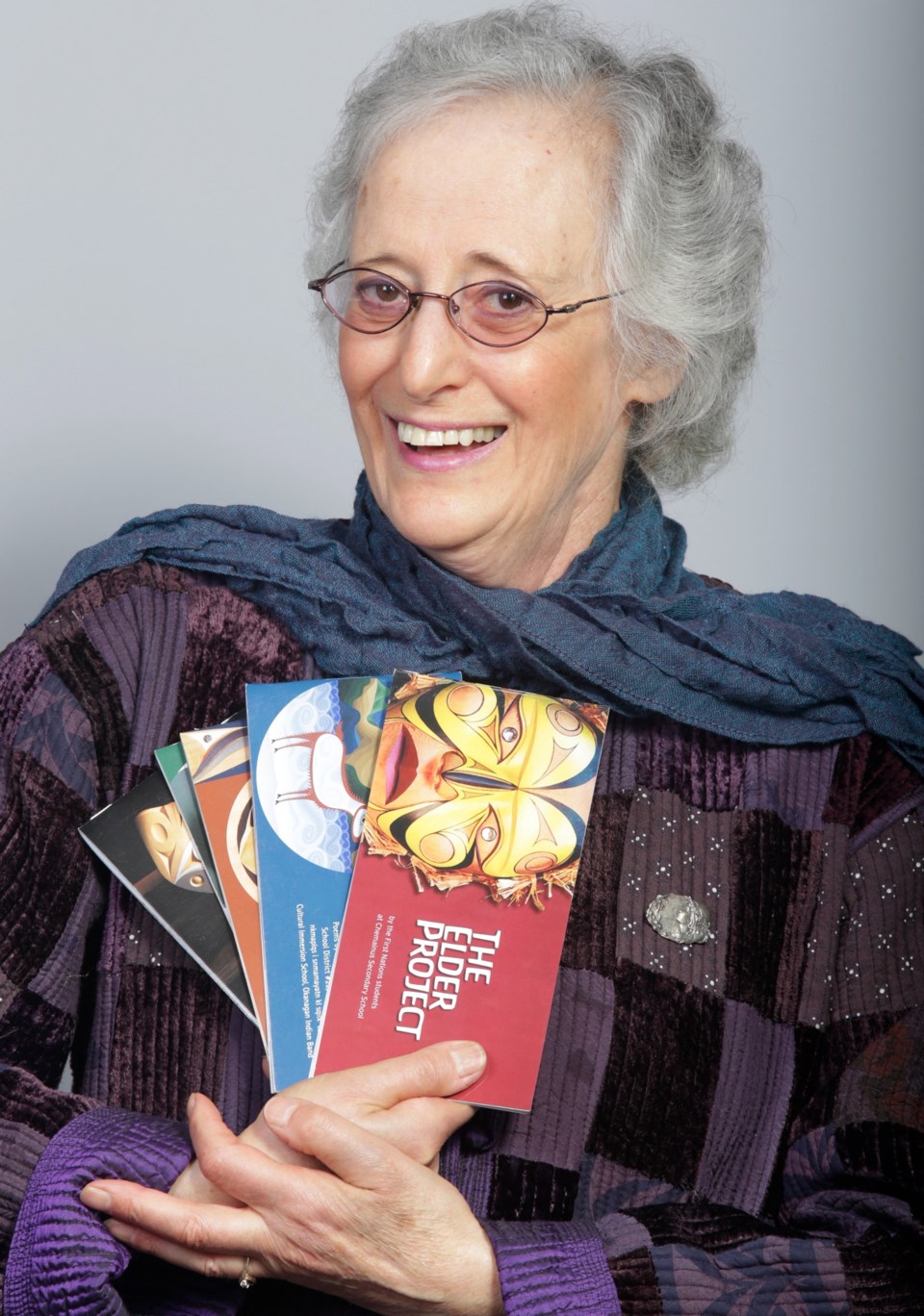Maybe it was a vestige of her earlier career as a private investigator, but while working on a project for the Alberni Valley Museum in 2008, poet Wendy Morton noticed something missing.
That project used archival photographs, like those of old sawmill workers and loggers from the Alberni Valley, to inspire poems for a book. But partway through, Morton called a halt because there was nothing to illustrate the First Nations experience.
“I said, ‘Wait a minute, we are forgetting an entire population in these archival photographs,’ ” said the 72-year-old Sooke poet who only recently retired from working as an insurance investigator.
As a result, a good collection of archival photographs was found to depict the Native experience in the Alberni Valley. Some of those images and tales were later included in Morton’s 2009 book, What Were Their Dreams.
So a poem like George, a poignant few lines of Native lives held back, unfulfilled and unrecognized, found its way into the book.
Alongside, however, is The Plywood Girls, about young women enlisted into working in the sawmills during the Second World War.
Morton also credits that Alberni experience for being a personal inspiration for what she now calls “the elder project.” After a lifetime that includes stints as a teacher, a printer, an insurance investigator and a poet, she has now been moved to help stop the erosion of a cultural memory.
This elder project works by assisting young Native people to make connections with their cultural history by having them meet, interview, question, listen and hear from seniors in their own communities.
Morton then becomes a kind of poet/teacher, helping the young people put what they hear and learn into verse to be included in a book of their own.
The first book was one slim paperback volume of poems, The Elder Project, written and completed in 2010 by teens from Chemainus Secondary School.
That same year, a similar exercise was undertaken in Vernon and the result was another slim book, Together with the Children.
The following year came another book, this one from the children of Chemainus elementary, The Words of the Elders. Then there was Xe Xe (Salish for honouring) by S.J. Willis, and soon to be followed by The Wisdom of the Elders from Stelly’s secondary.
Morton said the motivation behind the books was to connect the younger Native generation with their elders. These seniors hold so much cultural heritage locked in their memories and experiences, but they are overlooked and disappearing.
“So I’m training these kids to listen and hear these stories,” she said.
And for Morton the poet, the emotional connection and lyrical expressions in the poems were profound and moving.
“When I see these kids step up to a microphone to read a poem to their grandmother, and their grandfather is there on their arm, it just fills me with huge delight,” she said.
Meanwhile, as books piled up, and in a move surprising Morton and others involved, the kids moved in and took over a big part of the creative process.
When a second book got underway nearby, young people, already veterans of earlier volumes, eagerly showed up. They were there to help their younger peers complete their first book.
“So these kids from the first book ended up tutoring the ones from the second,” Morton said.
And it looks as though it will be an ongoing process.
“When I go back to these schools, the kids will just come at me and say, ‘Can we do another book?’ ”
For Morton, the experience has taken over in a way that goes beyond her own creative expression. Already the author of six books of poetry, the elder project has its own momentum.
“This project isn’t about me anymore,” she said. “I’m just the conduit. I’m the one who comes in and says, ‘I know how to do this, I can show you how to write poetry,’ ” Morton said.
“And we can kick ass.”



